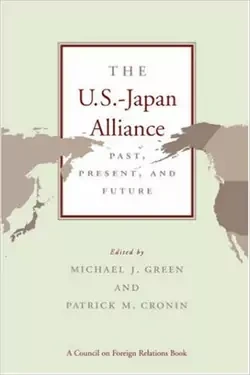
The U.S.-Japan Alliance
Past, Present, and Future

- Book
- Foreign policy analyses written by CFR fellows and published by the trade presses, academic presses, or the Council on Foreign Relations Press.
During the Cold War, the U.S.-Japan alliance was at the core of the American presence, power, and prestige in the Asia-Pacific region. When the Cold War ended, many questioned whether the alliance would continue to serve U.S. and Japanese interests. In the late 1990s, the United States and Japan answered that question with a formal reaffirmation of the Security Treaty and the upgrading of bilateral guidelines for defense cooperation. But the alliance has also faced new challenges: domestic opposition to U.S. bases in Okinawa; Chinese criticism of a stronger U.S.-Japan security relationship; and growing international frustration with Japan's economic policies. The alliance remains crucial to both nations' interests, but the management of bilateral security ties has become more complex.
The U.S.-Japan Alliance explains the inner workings of that alliance and recommends new approaches to sustain this critical bilateral relationship. The authors are scholars and practitioners who understand where the alliance came from, how it is managed, and the strategic decisions that will have to be made in the future. Divided into four sections--the role of the alliance in the context of the East Asian strategic environment; the bilateral military relationship; the domestic politics of the alliance in both Japan and the United States; and the economic dimension of the security relationship--the volume concludes with the editors' recommended agenda for the future of the alliance.
More on:
A Council on Foreign Relations Book
More on:
 Online Store
Online Store